According to cppreference, both gcc and clang have completed the implementation of P1102R2 ("Down with ()!") recently, which means we can define lambda expressions more concisely in C++23.
But I found that they are inconsistent with a certain form:
auto l = []<auto> noexcept requires true {};
clang accepts this form, and gcc rejects its grammar.
Which compiler should I trust? Is this lambda well-formed or ill-formed in C++23?
Update:
Perhaps because of the pressure of public opinion, clang quickly fixed the 49736 within five days after I reported it.
As I tried further, I accidentally found out that gcc also rejected the following valid form, which made me report the 99850 and it was fixed after 2 weeks.
auto l = []<auto> requires true -> void {};
